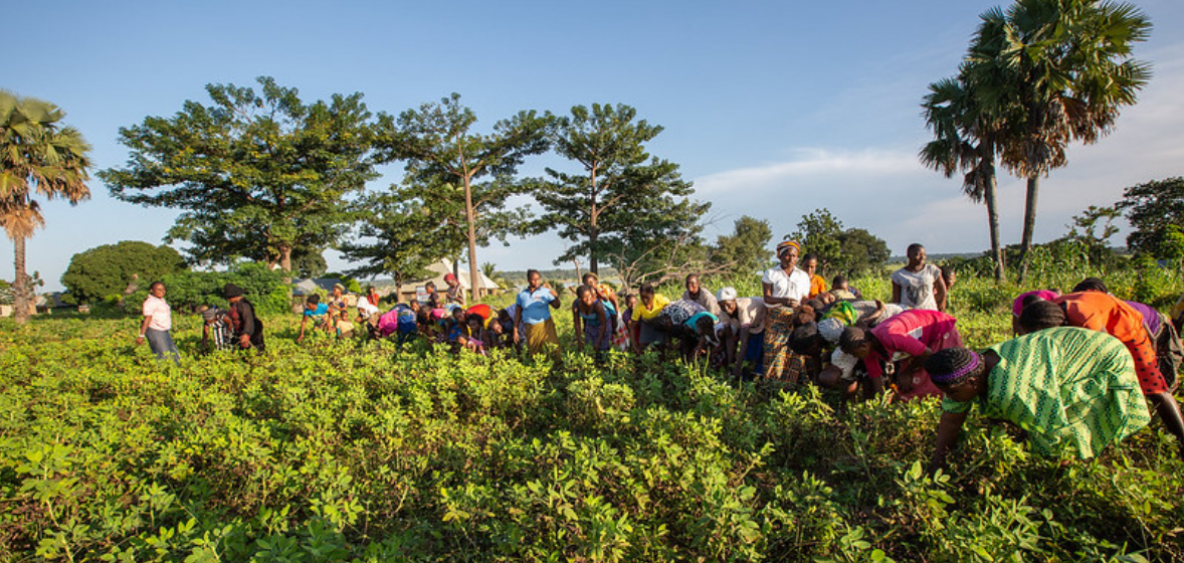 Credit: UNDP Nigeria
Credit: UNDP Nigeria The Resilient Food Systems programme has been fostering food systems resilience in sub-Saharan Africa since 2017, and it is now coming to a close. Reflecting upon south-south learning and the benefits of the integrated approach pilot, we are taking stock of lessons learned and looking to the future, both here and in an upcoming report.
Integrated Approach Pilot (IAP) programs were conceived as part of the Global Environment Facility’s (GEF) 2020 Strategy to explore integrated approaches to addressing global environmental challenges. Three IAPs were funded as part of this initiative, which fell under the GEF-6 funding cycle: Fostering Sustainable Cities; Taking Deforestation out of Commodity Supply Chains; and Sustainability and Resilience for Food Security in Sub-Saharan Africa, otherwise known as the Resilient Food Systems (RFS) programme.
The RFS programme was originally intended for a 5-year funding cycle, leveraging co-financing from governments and other investors, from 2017-2022. After receiving a 6-month, no-cost extension, RFS is officially coming to a close at the end of June 2023.
But while the programme may be finished, the legacy of the integrated approach on food systems transformation isn’t going anywhere, and we are now celebrating programme successes and looking to the future as we close out this chapter.
The RFS programme was implemented in 12 countries in sub-Saharan Africa, all connected through one Regional Hub to align efforts and link synergies between work at national and global scales. Each country project set its own targets tailored to their unique contexts, and the Regional Hub tracked progress against core GEF indicators. Updates from across Hub targets are summarised in the annual Programme Highlights reports (see: 2018/19, 2020, 2021, 2022 reports), while success stories are shared in monthly news posts on the RFS website, and in various knowledge products produced with support from the Regional Hub, available in the RFS Knowledge Centre.
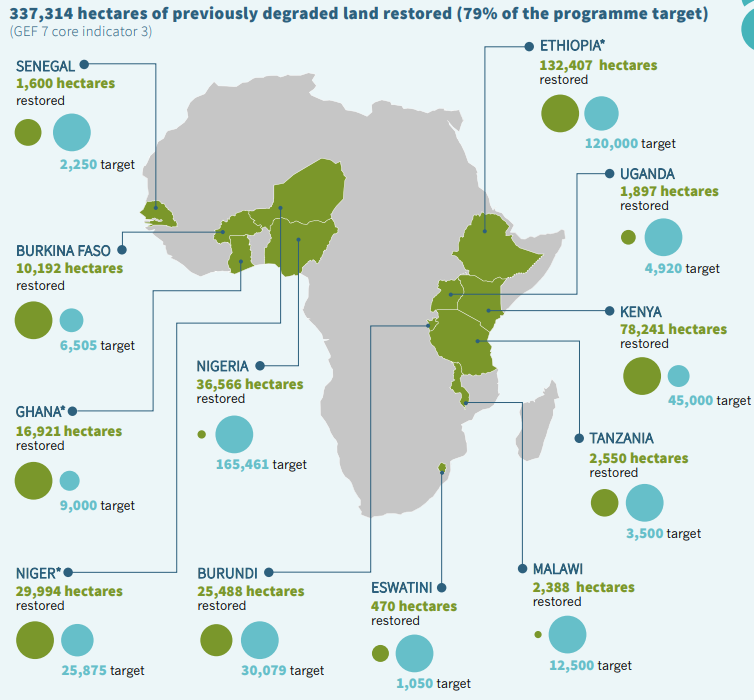
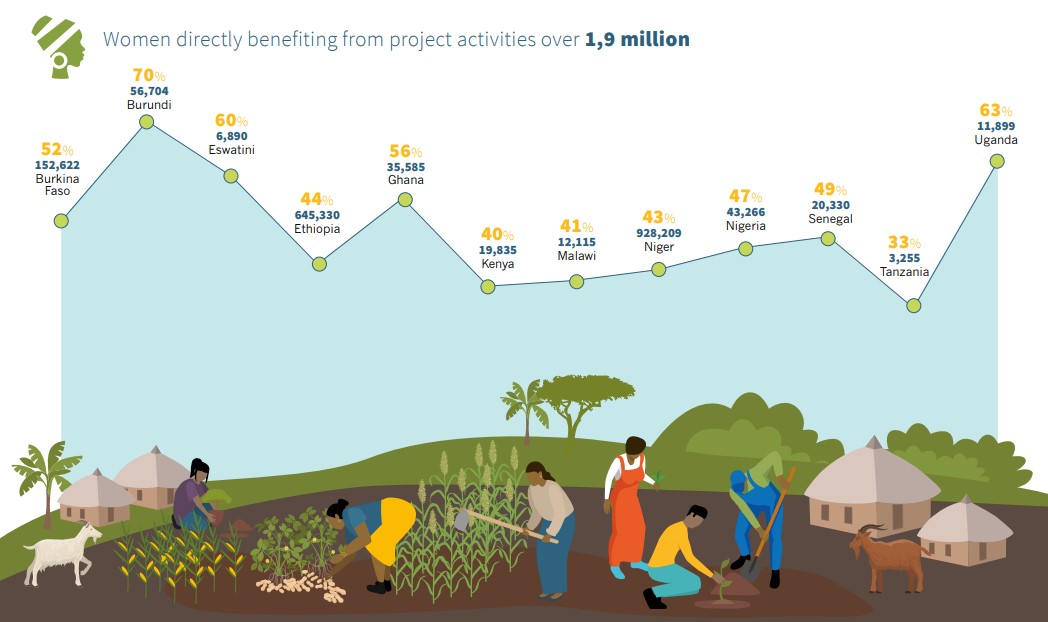
South-South learning is anchored in the integrated approach of the RFS programme, setting us apart from standalone development projects. RFS Annual Workshops took place in 2017, 2018, 2019, 2021 and 2022 in Ethiopia, Kenya, Ghana, virtual format, and Malawi, respectively, offering a space for cross-country learning. Several country exchanges have resulted from the workshops, leading to adoption of new practices and scaling results. For example, following the 2019 Workshop, the RFS Nigeria team returned to Ghana to learn about a composting approach that has since become a hugely successful part of the Nigeria project activities. This is just one of many tangible benefits to the integrated approach that has transformed rural livelihoods in sub-Saharan Africa through RFS.
The activities carried out over the course of the RFS programme had sustainability embedded in them from start to finish to truly be transformative. This means that activities at the community level will be continued by beneficiaries long after project teams leave their areas. Project co-design in partnership with the communities themselves has ensured this because the activities of projects are locally relevant, and stakeholders have been capacitated to carry this work out independently. A great example of this is outlined in a recent article from RFS Tanzania about participatory land use planning.
At the programmatic level, the results of the RFS programme feed into the GEF-7 and GEF-8 Impact Programmes. During the Final RFS Workshop in Naivasha, Kenya in June 2023, representatives from GEF-7 projects in Eswatini, Kenya and Tanzania presented on their connections with RFS lessons learned, and Regional Hub partners updated delegates on their plans for sustainability post-RFS. The RFS Consultative Committee underscored that sustainability and visibility are key to ensuring trust and continuity of engagement from communities.
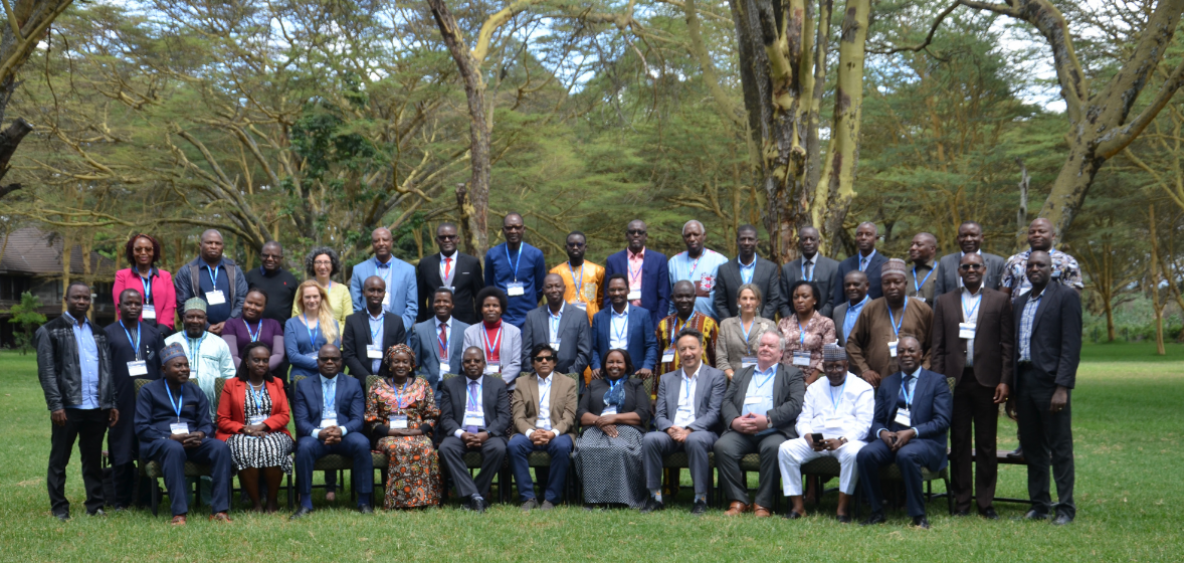
Sustainability measures, reflections, stories from the ground and methods of enhancing food systems resilience are all available in the upcoming Lessons Learned from the RFS Programme report. The report is an update to its predecessor, the Emerging Lessons from the RFS Programme report from 2021, and was validated during the recent Naivasha Workshop. The report will be linked to this page upon its upcoming launch.
RFS has been an immense success in terms of generating the lessons that will guide GEF programming and food systems development for years to come. What it comes down to, though, are the millions of rural livelihoods that have been transformed through the programme. These are what motivate Hub and country partners, alike, to take these experiences and run with them into the future phases of this important work.
We can’t wait to see what’s next!
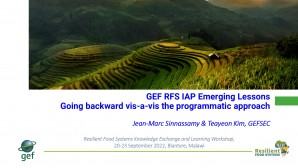
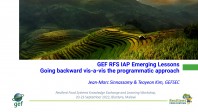
The Resilient Food Systems (RFS) programme is one of three Integrated Approach Pilots from the Global Environment Facility (GEF). At the 2022 RFS Knowledge Exchange and Learning Workshop in Malawi, the GEF Secretariat conducted a session to gather feedback from RFS stakeholders on the programmatic approach.
Subscribe to our monthly newsletter to receive updates on stories directly from the field across all our projects, upcoming events, new resources, and more.